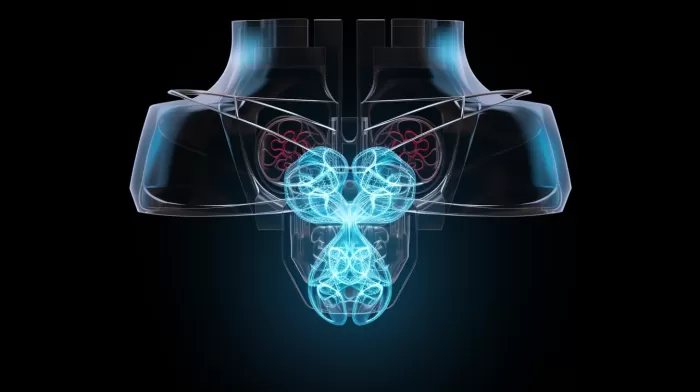Many years ago, I started having mysterious symptoms no doctor could pin down — fatigue, muscle weakness, dizziness, and just a general “off” feeling. It’s been a long journey trying to get a diagnosis since then, but I remember the first diagnosis I almost received — hyperthyroidism.
Hyperthyroidism is an overactive thyroid. The first doctor I saw told me that’s what he thought I had, and at first, I was relieved. It was just my pesky thyroid. It wasn’t something scary like cancer or MS. Then I looked at the treatment options and got more concerned—thyroid removal surgery, medications, radioactive iodine. Yikes!
Radioactive iodine sounded especially scary to me (I don’t usually associate the word “radioactive” with safe and healthy things). But radioactive iodine was — and still is — one of the most common treatments for hyperthyroidism.
How does it work?
Well, it basically destroys most of your thyroid gland. And a destroyed thyroid gland can’t be overactive, so, in a sense, it’s effective — but too effective. It slows down the thyroid so much that you end up with an underactive thyroid (hypothyroidism) and have to take medication daily for the rest of your life.
When I saw another doctor for a second opinion, she told me I didn’t have hyperthyroidism. So, I never got to the point of starting treatment. But millions of people in the U.S. do have hyperthyroidism. And many of them treat it with radioactive iodine.
Related: The reasons your doctor may miss your thyroid issues
Unfortunately, there’s a bigger downside to this treatment than just a destroyed thyroid gland…
It could be causing cancer too. In fact, a new study shows that people who treat their hyperthyroidism with radioactive iodine have a higher risk of dying from cancer.
Radioactive iodine doesn’t just attack your thyroid…
Researchers from the National Cancer Institute just uncovered an alarming side effect of radioactive iodine — a higher cancer risk.
Their study was a long-term follow-up study that included data from 19,000 people with hyperthyroidism who received radioactive iodine. Here’s what they found…
Even though most radioactive iodine gets absorbed by the thyroid, some of it goes to other areas, like the breasts and stomach. The amount absorbed by these other body parts impacts the likelihood of developing cancer in them later.
So, if you treat your hyperthyroidism with radioactive iodine and a decent dose ends up in your breast, your likelihood of breast cancer is higher. How much higher?
Well, researchers found that each 100 milligray (mGy) dose of radioactive iodine increased the risk of dying from breast cancer by 12 percent and solid tumors in general by five percent.
Researchers estimate that for every 1,000 people treated using the standard dosing range of radioactive iodine, about 20 to 30 people will die from a solid tumor cancer as a result of their radiation exposure.
What to do about your thyroid and your cancer risk
I’m guessing some people reading this already used radioactive iodine to treat their hyperthyroidism. And if you have, don’t stress. Overall, the risk is modest. But just to be safe, you can make a few lifestyle changes to detox from and reduce your overall cancer risk.
The two most important detoxification methods in your toolbox are diet and exercise. You release radioactive iodine and toxins in your sweat, so exercising can keep these things from staying in your body long term.
Eating lots of organic vegetables can help with detoxification too. When you eat pesticides, you increase your body’s toxic burden, which makes it harder for it to dispose of all the toxic stuff it needs to, including radioactive iodine.
If you have hyperthyroidism and you haven’t used radioactive iodine yet, consider other treatment options. There are other medications on the market that are becoming more popular than radioactive iodine. Of course, like all prescription medications, they come with some side effects. So, do your research.
If you’re interested in treating thyroid problems holistically, I recommend finding a functional medicine doctor. He or she will try to get to the root cause of the issue, rather than just destroying your thyroid. You’ll get an individualized treatment plan that will hopefully have you feeling better with a full thyroid intact. Here’s a searchable database from the Institute of Functional Medicine that can help you find a functional medicine doctor near you.
Sources:
Study finds increased risk of cancer death following treatment for hyperthyroidism — MedicalXpressAssociation of Radioactive Iodine Treatment With Cancer Mortality in Patients With Hyperthyroidism — JAMA Internal MedicineHyperthyroidism (Overactive Thyroid) — National Institute of Diabetes and Digestive and Kidney DiseasesHyperthyroidism (overactive thyroid) — Mayo Clinic



